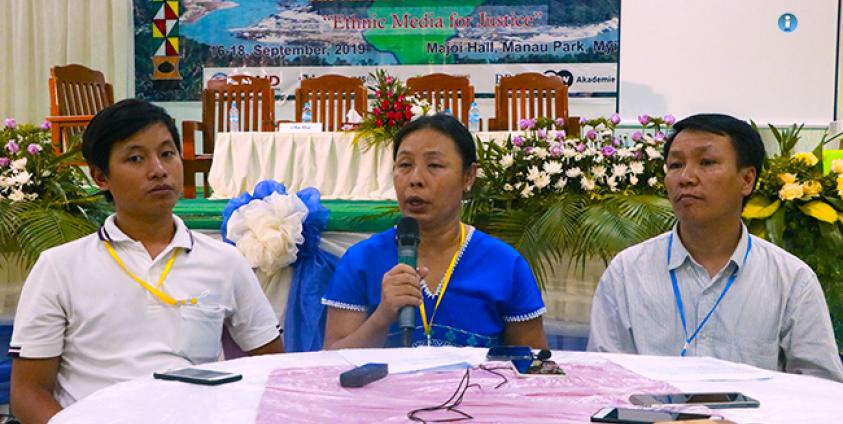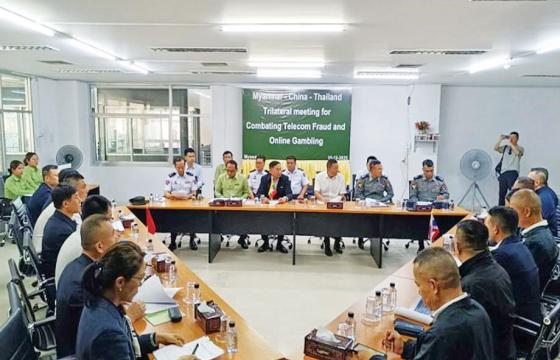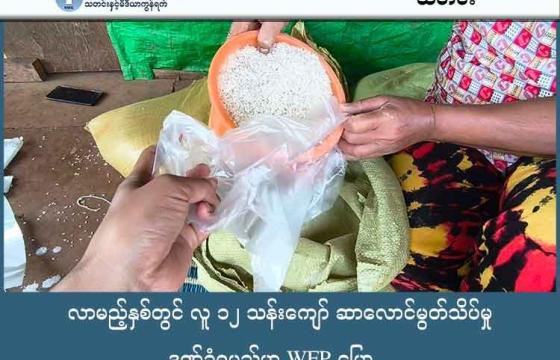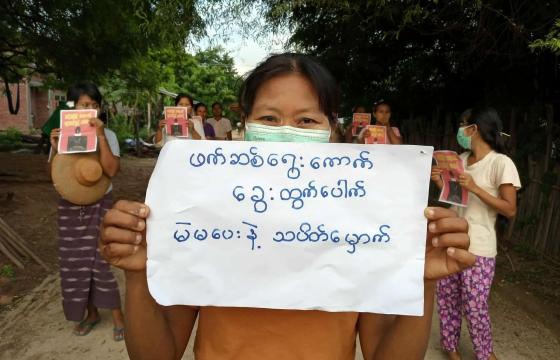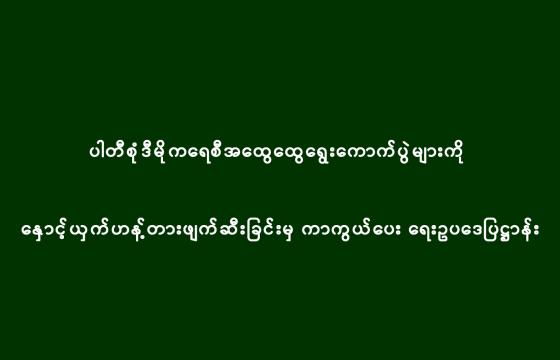A three-day conference on ethnic media in Burma, held in the Kachin State capital Myitkyina, concluded on Wednesday with demands for a new law to guarantee the country’s journalists the right to freedom of information.
“All media people in this country need to have this right to information. Civil society organizations understand how important it is and have drawn up a policy proposal. As a media network, we will cooperate with them to push for a freedom of information law,” said Nan Pawt Gay, one of the chairpersons of Burma News International (BNI), which organized the conference.
Besides calling for freedom of information, attendees at the 7th Ethnic Media Conference also urged the government to publish all media laws and by-laws in ethnic languages, and said that donors should continue to provide technical and financial support to local media organizations.
Another issue that was raised was the lack of transparency on megaprojects. BNI demanded that the government disclose information about all major development projects to the public and media.
Regarding the country’s transition to a democratic federal union, BNI said that all stakeholders needed to formulate a fair media policy. It also demanded that the government guarantee that all media outlets have full access to information during next year’s general elections, without regional restrictions.
Also discussed were the issue of security for journalists, the sustainability of ethnic media outlets, reporting on conflicts and related issues, such as the situation of internally displaced persons (IDPs), and rule of law and justice issues.
BNI has organized ethnic media conferences in all seven of Burma’s ethnic states.
At this year’s conference in Myitkyina, attendees agreed to implement a draft ethnic-media policy and to produce more local journalists in the different ethnic state by providing more capacity-building.
According to a statement released at the end of the conference, ethnic media outlets need to produce news stories that reflect the voice of ethnic people to help establish a federal democratic system in Burma.
Sai Mueng, the chief editor of the Shan Herald Agency for News, said the conference was a success and highlighted the value of holding it at this year’s venue.
“We could study many issues by holding it in Kachin State, including conflicts and the peace process, the IDP issue, restrictions on traveling, etc. We learned a lot about about the situation of Kachin State. I would say that was a strong point of this conference,” he told NMG.
More than 200 people, including members of BNI’s 14 associated media organizations, media people from across Burma, members of civil society organizations and local literature and culture associations, and internally displaced persons, attended the conference.

